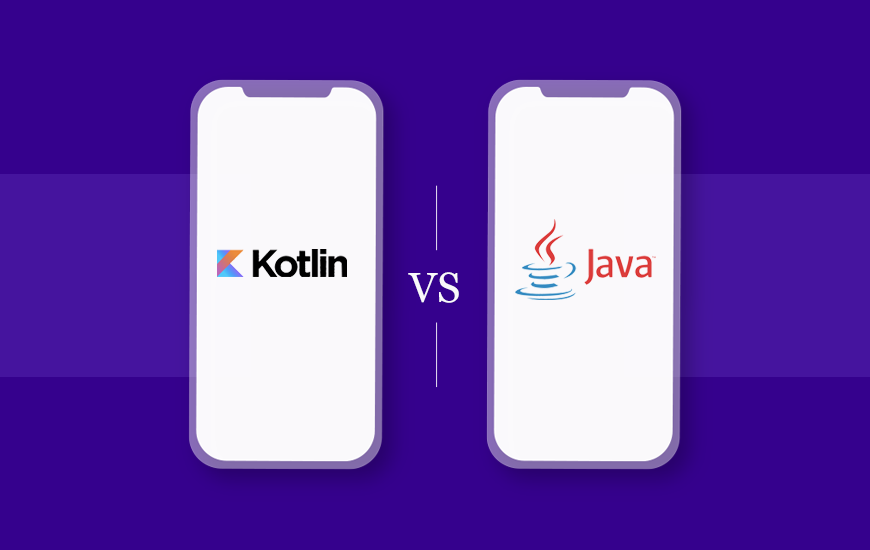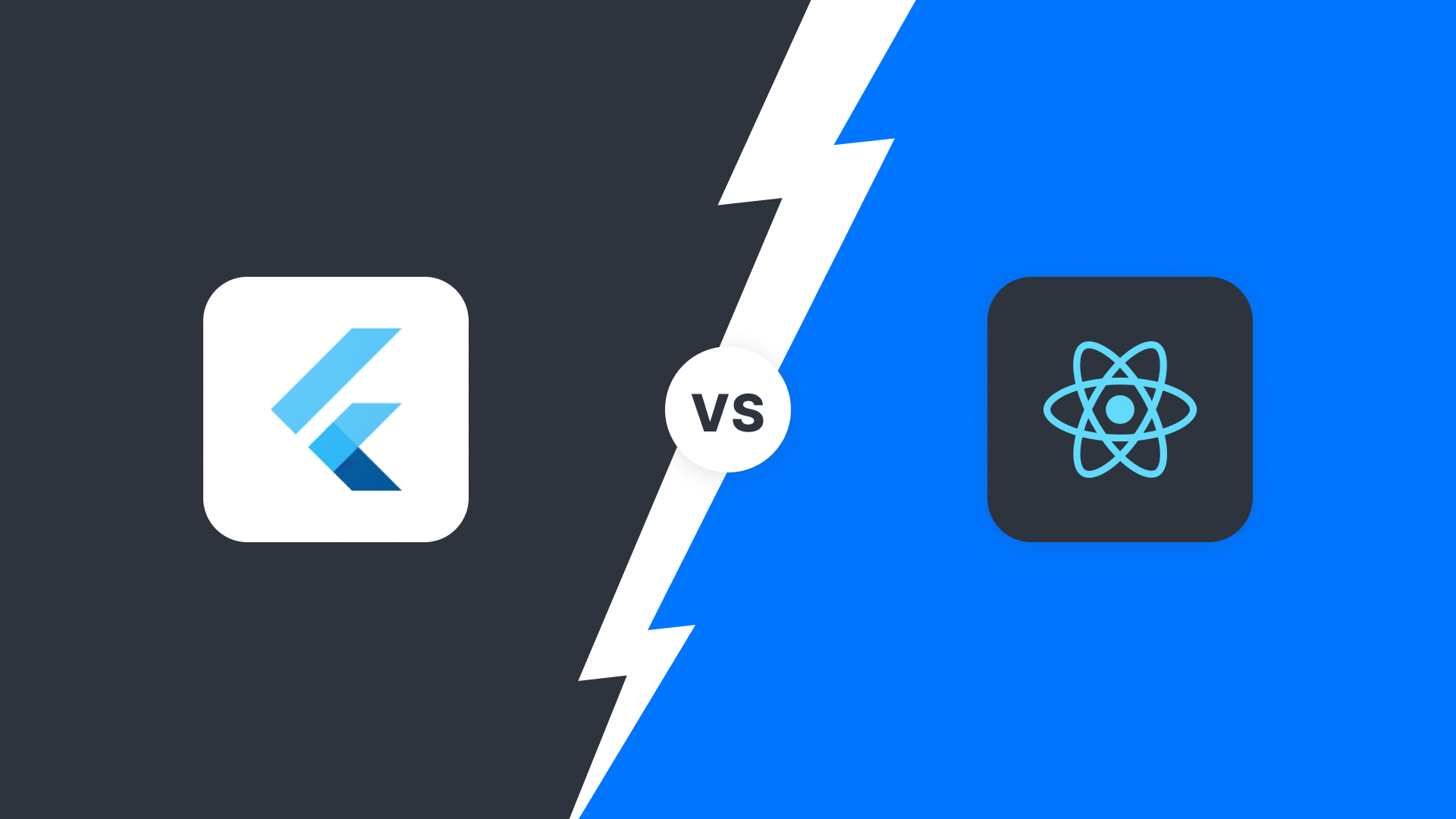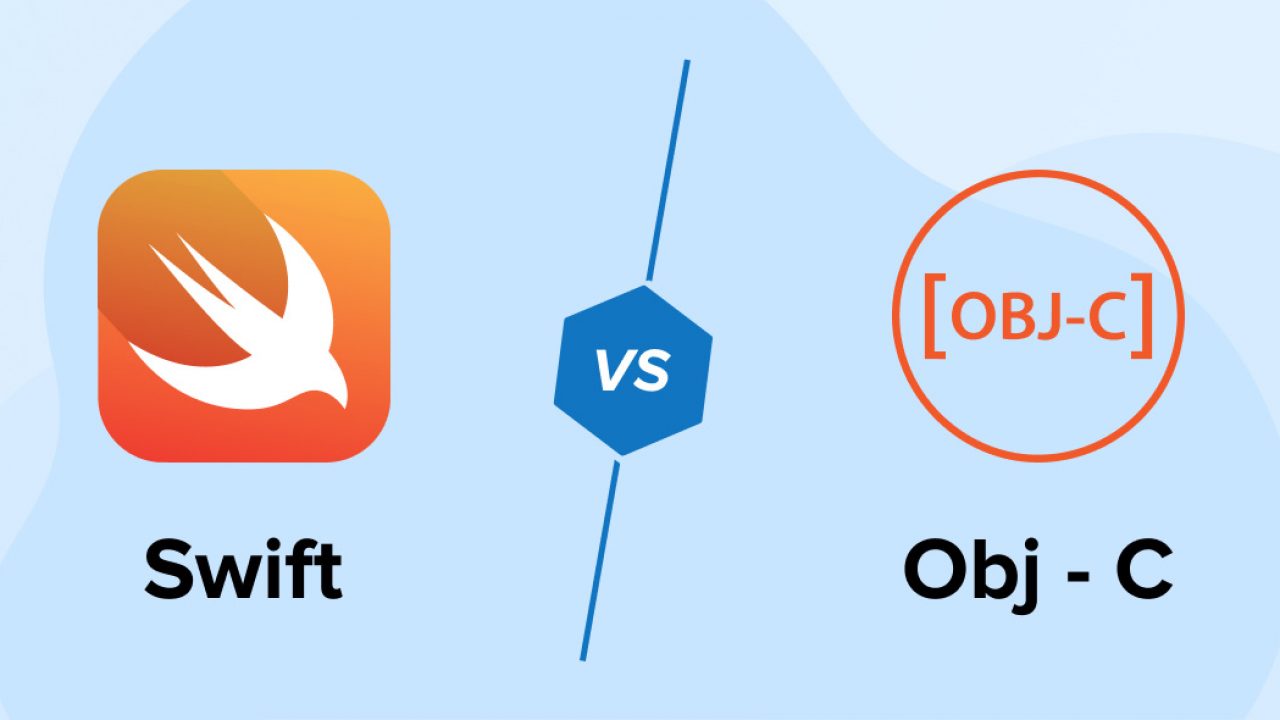Java may still be the first programming language that comes to mind when you think about Android, but you don’t have to use Java for Android development. There are new languages coming up everywhere which may challenge Java's dominance within the Android world.
One of them is Kotlin, a new programming language for Android app development, which has been announced by Google as a “first-class” language. Kotlin is far younger than Java, but it’s a really promising programming language and its community is constantly growing.
But what are you gaining if you do make the switch from Java to Kotlin? What properties does Kotlin have, that Java doesn’t, and vice versa?
In this article, we’re going to be looking at all the differences between Kotlin and Java.
Java
Java is the favorite language of many developers when it comes to android app development because Android itself was written in Java.
Developed by Sun Microsystems, Java is an object-oriented programming language that owns the title of the second most active language based on many resources . And no wonder — it’s been around for over 20 years, and its popularity only seems to grow.
Advantages of Java
There are some major advantages of Java; let’s see them.
1. Simple
Java is easy to use, write, compile, debug, and learn than other alternative programming languages. Java is less complicated than C++; as a result, Java uses automatic memory allocation and garbage collection.
2. Object-Oriented
It permits you to form standard programs and reusable code.
3. Platform-Independent
Java code runs on any machine that doesn’t need any special software to be installed, but the JVM needs to be present on the machine.
4. Distributed computing
Distributed computing involves several computers on a network working together. It helps in developing applications on networks that can contribute to both data and application functionality.
5. Secure
Java has no explicit pointer. Apart from this, it has a security manager that defines the access of classes.
6. Memory allocation
In Java, memory is divided into two parts one is heap and another is stack. Whenever we declare a variable JVM gives memory from either stack or heap space. It helps to keep the information and restore it easily.
Disadvantages of Java
1. Performance
Java is memory-consuming and significantly slower than natively compiled languages such as C or C++.
2. Look and Feel
The default look of GUI applications written in Java using the Swing toolkit is very different from native applications.
3. Single-Paradigm Language
Static imports were added in Java 5.0. The procedural paradigm is better accommodated than in earlier versions of Java.
4. Memory Management
In Java, Memory is managed through garbage collection, whenever the garbage collector runs, it affects the performance of the application. This is because all other threads in the have to be stopped to allow the garbage collector thread to work.
Kotlin
Kotlin was designed by programmers from JetBrains (the guys behind integrated development environments) to add some modern features to Java that come in handy in mobile development.
Kotlin is an open source, statically typed language based on Java Virtual Machine (JVM), but you can also compile it to JavaScript or Native for building code that can run on iOS. All it takes is installing the Kotlin Plugin and letting it configure your project.
Advantages Of Kotlin
1. It Maximizes the Productivity of Teams
Kotlin is a Java based programming language. It can eliminate the cumbersomeness as well as obsolescence of Java. Besides being a clear, compact and efficient language, Kotlin takes pride in owning an intuitive and concise syntax.
Resultantly, Kotlin can maximize the overall productivity of an entire team of developers. It entails a very little time to write as well as deploy new codes using Kotlin. It also ensures easier code maintainability at scale.
2. It Coordinates with Existing Java Code
The programming language of Kotlin has interoperability in Java. It is consistent with Java and many other related frameworks and tools. This makes it possible for making a switch to Kotlin.
In case if your products can’t be written in just Kotlin, both the programming languages could be easily used simultaneously.
3. It Can be Maintained with Ease
Kotlin has stellar support for many IDEs that include Android studio and numerous other SDK tools.
This helps in maximizing the overall productivity of a developer because it can continuously deal with the toolkits they are already used to.
4. It is a Lot Less Buggy
With a clearer and more compact codebase, Kotlin leaves no rooms for making mistakes. It also provides more stable codes in production.
The compiler can identify every possible mistake at a compile time span sans any hassle. As a result of this, it turns Kotlin into a safer substitute to Java.
5. It is a Lot More Reliable
Unlike many other conventional programming languages, Kotlin is a lot more mature language. Kotlin came into being back in the year 2011.
From the moment it was introduced, Kotlin has undergone multiple Beta and Alfa stages prior to releasing its final version. The latest release is reversely compatible with its several other previous language versions.
6. It is Easy to Learn
Kotlin is aimed at enhancing the features of Java rather than just rewriting them. All the skills that a mobile app developer has mastered and obtained when working on Java, could be applied to every project related to Kotlin as well.
Disadvantages Of Kotlin
1. It is Still Different from Java
Even though Kotlin and Java have a number of similarities to share, they have some prominent differences as well. The mobile app developers cannot make a switch to any other programming language sans learning thoroughly about Kotlin.
2. Slower Compilation Speed
In a few cases, Kotlin works faster than Java, especially while performing incremental builds. But it should be kept in mind that Java would still reign supreme when it is about clean building.
3. Fewer Kotlin Professionals to Recruit
Despite the sky high popularity of Kotlin, there are still only a handful of programmers available in this field today.
It is needless to say that every mobile app developer who wants to work on Kotlin should gain in-depth knowledge on it. Unfortunately, it is still difficult to find the truly experienced experts in the domain of Kotlin.
4. Limited Resources for Learning Kotlin
Even though, most of the developers are increasingly switching to Kotlin, there is a limited community of developers available worldwide. It leads to restricted resources for learning the programming language and resolving different queries in the process of app development.
Is This The End Of Java?
There are mixed opinions from developers.
Java is a reputable programming language with vast open-source tools and libraries to help developers. With that said, no language is without fault and even Java is subject to complications that can make a developer’s job tedious. If anything, Kotlin will introduce solutions to common programming headaches and improve the Java ecosystem as a whole.
In two years, Kotlin has become a more stable and congruous development option for Android Studio. Some developers seem to believe that Kotlin will oust Java for Android development in the coming years. Other experts see Kotlin and Java coexisting without one outweighing the other.
For most, Kotlin’s strengths outweigh the language’s setbacks. There are definite limitations within Java that impede Android API design. Kotlin is inherently lightweight, clean and far less verbose, especially in terms of writing callbacks, data classes, and getters/setters. In other words, Kotlin is specifically designed to improve existing Java models by offering solutions to API design deficiencies.
Conclusion
Learn Kotlin
As you can see there are lots of good reasons to prefer Kotlin to Java, however there are a couple of areas where Java has the upper hand.
Perhaps most notably: many Android developers are simply more familiar with Java at this point. Likely the Kotlin vs Java debate won’t settle anytime soon, with both having their own merits.
While Kotlin offers many advantages that Java doesn't, it still has some shortcomings. When letting your team experiment with Kotlin, remember that transitioning to a new language isn't always that exciting for developers who have already found the tools and strategies that work for them.











